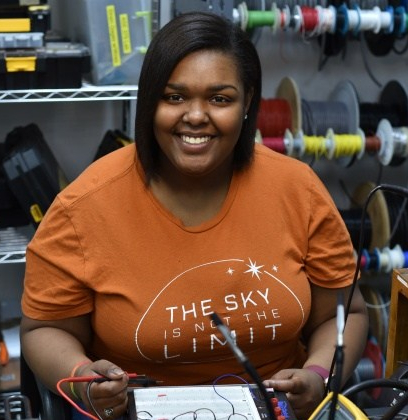A friend observed that Elon Musk is remaking Central Texas with companies that bore (rock), move (electric trucks), launch (space ships), and link (your brain). And yes, it seems that the South African native opted for this most business-friendly of states over progressive California.
He’s not alone.
South Korea’s Samsung is negotiating a $17 billion expansion of its existing fabrication plant, or fab, Samsung Austin Semiconductor. The new fab will make logic chips, a more profitable product than the memory chips its made here for the past 25 years, and expand the company’s foundry business. Perhaps most important, it will do all of this closer to its U.S. customers.
With a national unemployment rate flirting with 8%, semiconductor manufacturing jobs pay about twice those in the rest of the manufacturing sector, feeding those middle rungs of the pay scale ladder where the middle class lives (or would like to live). Samsung’s new fab, for example, is expected create 1,900 jobs that pay an initial average annual wage of $66,254.
Semiconductors: Technology’s anchor store
Semiconductors, or microchips, are the technology food chain’s anchor store, the building blocks for advanced technologies that will run our factories, manage our cities, develop and deliver our medicine, re-shape education and the workplace, and keep us safe.
Semiconductors are the tiny chips that serve as the brains behind your toaster, your smartphone, all the way to fighter jets and in the very near future, they will serve as the brains behind the innovations of tomorrow such as 5G, quantum computing and artificial intelligence.
U.S. Representative Michael McCaul, ranking member, Foreign Affairs Commitee and Chair, China Task Force
Today about 90% of high-volume, leading-edge integrated circuit production in this made-in-America industry takes place in East Asia –Taiwan, South Korea and the People’s Republic of China. Although the United States remains the market leader in worldwide sales, the pandemic and a testy relationship with China have shaken both U.S. dominance and its confidence in the complicated, globalized supply chain and foreign markets those sales rely on.
There’s always a bit of machismo in dominating an industry, but also a real recognition that the ready availability of semiconductors is essential to both to national security and the future of America’s role in technology. Like sensible parents, microchip companies and policy makers want to bring some of that production closer to home. Of course there is a price to pay. According to the Boston Consulting Group, it will take $50 billion provided over 20 years to raise the United States from its #4 slot to #2 in domestic manufacturing production. Twenty billion will keep us at #4. By way of comparison, China is investing $170 billion in semiconductor independence.
About that global supply chain
The federal government has nurtured the semiconductor industry since its inception. The last time a foreign threat to U.S. dominance appeared, it bankrolled an industry consortium called SEMATECH right here in Austin. To underscore the importance of its mission, members installed no one less than the co-inventor of the microchip as chief executive.
There are those that ague against adopting anything akin to an industrial policy, but consider how integral semiconductors are to the drones, weapon systems and monitoring devices central to our national defense. Then consider the panicked workarounds that would be needed should supplies be disrupted. As if those risk scenarios aren’t enough, the biggest hack in U.S. history, also made here in Austin, was discovered in late December after months of burrowing undetected into the workings of both the public or private sectors. The 2020 Solar Winds Breach was a supply chain hack, perhaps through software maintained in Eastern Europe.
A time for enlightened partnerships
The semiconductor industry has shown a remarkable ability to develop ways to collaborate on common problems. SEMATECH skirted proprietary intellectual property issues and settled on a strategy of solving common manufacturing problems that would result in more efficient, effective manufacturing processes.
Not that supply chain concerns are restricted to the United States. Europe doesn’t want to depend on the United States or Asia. China doesn’t want to depend on the United States, and South Korea doesn’t want to depend on Japan, which doesn’t want to depend on South Korea. So depending on how you look at it, the field is ripe for geopolitical gamesmanship – and enlightened alliances.
As Samsung negotiates its plans in Austin, Taiwan-based TSMC is breaking ground on a $12 billion fab in Phoenix. Both Taiwan and South Korea are U.S. allies; both live in dangerous neighborhoods; both are manufacturing powerhouses, hosting respectively 36 and 24 operating fabs. In addition to its Austin fab, Samsung has six fabs in China and is reportedly repatriating its semiconductor supply chain. It closed its China-based smartphone factories in 2019 over intellectual property concerns.
Semiconductors are the tip of the iceberg.
The federal government is doing its part in maintaining a robust tech sector, its battles with Big Tech aside, passing the 2021 National Defense Authorization Act, thanks to the efforts of Congressman McCaul (R-Tx) and Doris Matsui (D-Ca) in the House, working with Senators John Cornyn (R-Tx) and Mark Warner (D-Va). The NDAA, which still needs to funded by Congress, provides incentives, grants and credits research and development and domestic fab construction.
But semiconductors are only the first rung of a technology food chain that creates industries that in turn create jobs, opportunities and living wages for real people and their kids. With geopolitical gamesmanship the name of the game these days, it’s a good time to look ahead, learn from not only the past and “our most serious competitor.”
Allies and immigrants: We get the job done
Which brings us back to Elon Musk.
Musk’s relationship with China transformed Tesla into a stock market darling and Musk into the world’s richest man. Tesla is a case study in using the anchor store concept to build supply chains. The all-important batteries that power Tesla EVs are made locally by Chinese manufacturers not the Tesla battery factory in Reno, Nevada. The romance may not last, but there’s a lot to learn from it.
Does Elon Musk answer to anyone? Turns out, the answer is yes. Take a look at the language Tesla used in response to the Chinese regulators inquiring about quality issues. In a filing, the company “sincerely accepted the guidance of government departments,” and “deeply reflected on shortcomings.” That’s a far cry from Musk’s belittling the SEC as the “Shortseller Enrichment Commission,” or telling U.S. auto regulators its rules are “anachronistic,” or attacking California health care officials as “unelected and ignorant.” Pretty clear where the power lies these days.
Alan Murray, CEO Daily, Fortune






















